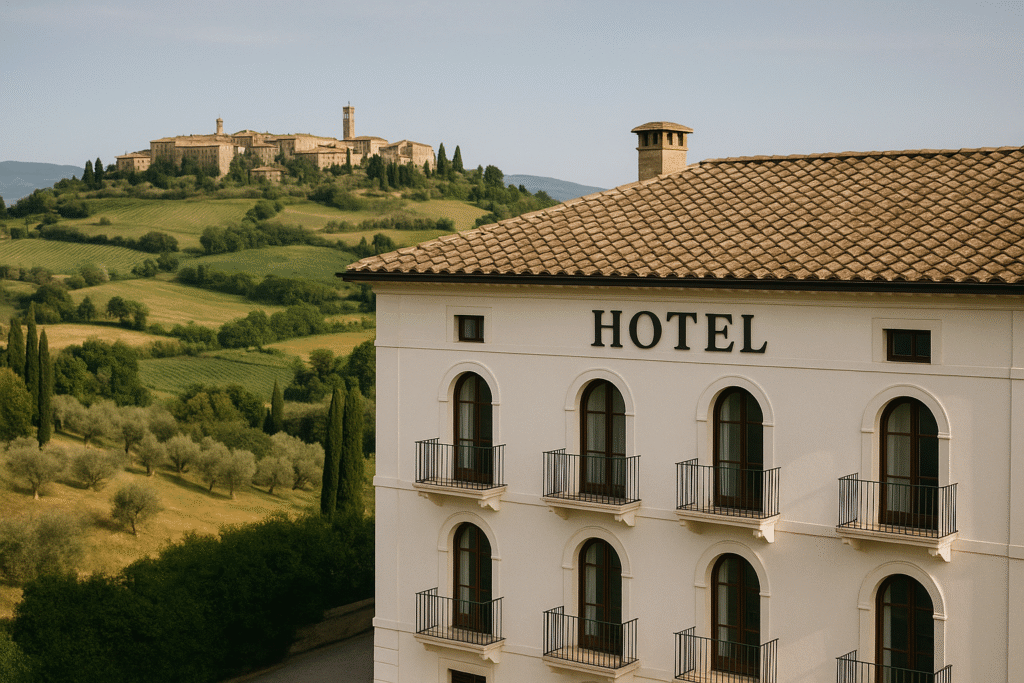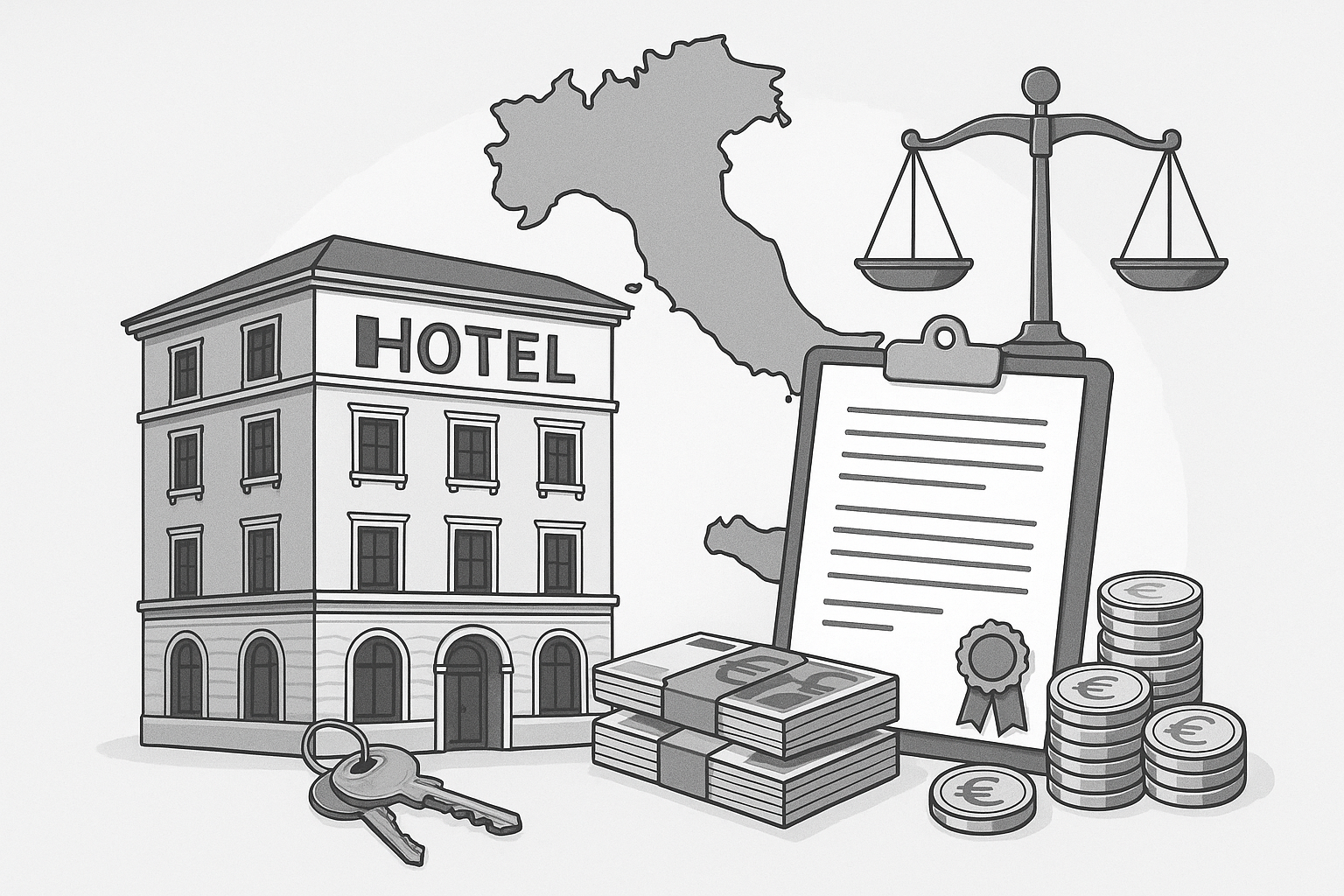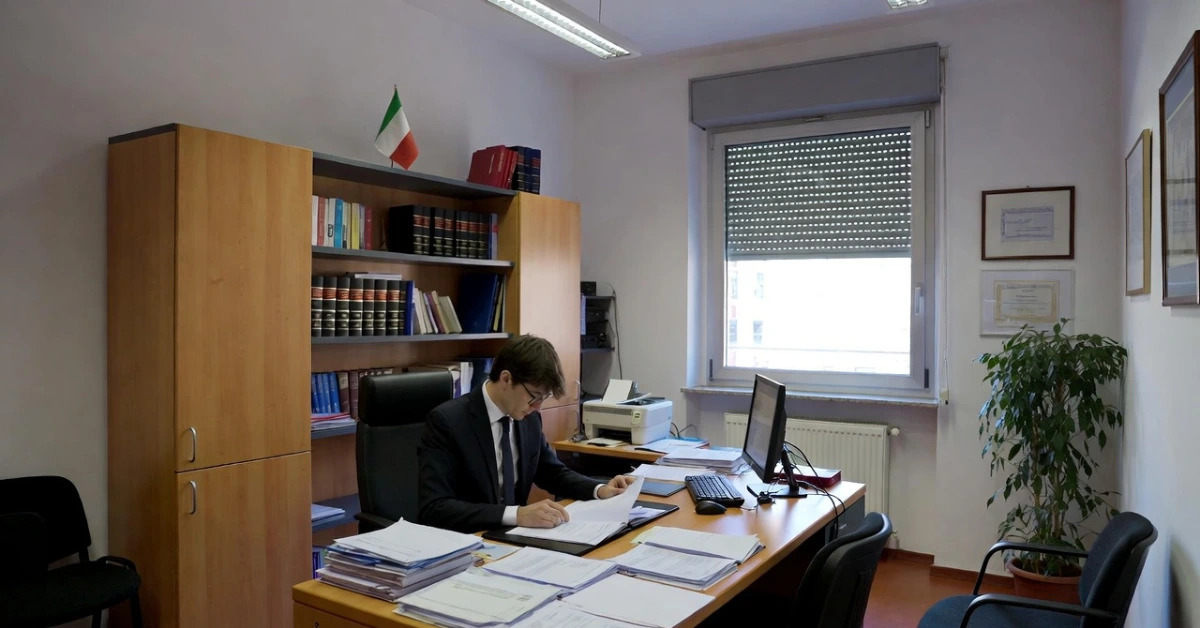Italy continues to be attractive to international purchasers of hospitality property. With its strong demand for tourism, stunning countryside, and historic towns, Italy offers good long-term investment value for investors looking to acquire and operate a hotel. However, unlike the acquisition of residential property, the Italian acquisition of hotels requires an extensive understanding of commercial real estate law, local government rules, and operating structures.
Table of Contents
ToggleLegal Framework for Purchase of a Hotel
Italy provides EU and non-EU nationals with the option to purchase commercial real estate. The purchase of a hotel is a commercial transaction and is regulated by local, regional, and national law.
Generally, foreign buyers have to choose one of the following types of law:
- Persona fisica (individual ownership)
This is the simplest form of doing business in Italy, where the owner operates in their own name without creating a separate legal entity. It’s easy to set up and manage, with minimal administrative costs. However, it comes with unlimited personal liability, meaning the owner’s personal assets (like a home or savings) could be at risk if the business accumulates debt or defaults on obligations. It’s typically used for very small operations or freelance-style work, but it offers little protection in case of insolvency proceedings.
- Società a responsabilità limitata (S.r.l.)
The S.r.l. is Italy’s equivalent of a liomited liability company (LLC). It provides a legal separation between the company’s assets and the shareholders’ personal assets, meaning liability is generally limited to the amount invested in the company. This structure is widely used across industries, including real estate, hospitality, and services, due to its flexibility, investor appeal, and credibility. An S.r.l. can also benefit from structured insolvency tools like the concordato preventivo and offers easier access to financing and formal restructuring options.
- Società agricola
This is a specialized form of company designed for agricultural activities. It is commonly used for buying agriturismoproperties—rural estates that combine hospitality services with active farming. A società agricola enjoys specific tax benefits and can access rural development incentives under Italian and EU policies. It can also operate as a limited liability entity (S.r.l. agricola), offering both sector-specific advantages and asset protection. This structure is ideal for investors interested in combining tourism with sustainable agriculture in the Italian countryside.
After you decide on the type, your attorney or notaio will check the destinazione d’uso (zoning category) of the property to make sure it is zoned for hospitality use. Hotel, resort, and agriturismo properties must already have, or be eligible for, a municipal hospitality license.
Then, you have to provide the following documents for reviewed before completing the purchase:
- Visura catastale: Land registry certificate proving ownership and legal standing
- Planimetria catastale: Floor plans presented to the land registry
- Titolo di provenienza: Title confirming the seller’s ownership rights
- Certificato di agibilità: Certificate of habitability confirming that the building is safe and suitable for hospitality purposes
- APE (Attestato di Prestazione Energetica): Energy performance certificate
- Licenza alberghiera: Hotel operation license required by the Comune
After the phase of due diligence, the compromesso (preliminary agreement) is signed by the parties, typically in the form of a down payment of 10 to 30 percent. You must sign the deed of sale (rogito) in front of a notary.

Taxation During and After the Purchase
The taxation system is pretty straightforward. You are generally taxed depending on whether you purchase as an individual or as a company.
For Individuals buying a ready hotel 9% registration tax on cadastral value, + €100 notarial costs. If you own a company, you have to cosider these two options:
- Company, buying a new hotel, 22% VAT, fixed registration tax of €200
- Company, buying the ground on which to build a hotel, VAT or registration ta,x depending on zoning
Recurring property taxes are:
- IMU (Imposta Municipale Unica): Annual municipal property tax
- TARI: Tax on waste disposal, variable by size and use
- IVA: VAT on services and accommodations, if levied
Finally, if running a hotel business as a business enterprise, social contributions and corporate taxes for the employees also become your responsibility. It is possible to have the services of an experienced commercialista (Italian accountant) to assist in managing VAT registration, tax filing, and employees’ contributions through INPS and INAIL.
Financing Options for Foreign Investors
It is possible to get an Italian mortgage (mutuo ipotecario) even without living in Italy, but the lenders will require a higher down payment and complete financial histories.
Typical mortgage terms are:
- 30 to 40 percent down payment
- Approximate interest rates of 3 to 4 percent
- Up to 25 years loan term
- Income proof, business plan, and property appraisal
- Foreign buyers like to set up an Italian company (S.r.l.) for the operation of activities and raising funds. It also facilitates deductions of costs on real estate.
Where to Buy a Hotel in Italy?
Now, let’s have a look at the most attractive regions where people generally invest in hotels, not only because they are stunning but also because it’s sure to be beneficial.
Tuscany
This is where everyone wants to buy, and for good reason. Rolling hills, world-class wine, and tourists who’ll pay premium prices. Expect to spend €1.5-4 million for a decent boutique property, but the rental potential is solid.
Umbria and Le Marche
It’s like “Tuscany but cheaper.” You’ll get similar beautiful countryside and charming medieval towns, but without quite as much competition or price pressure. Perfect for agriturismo-style properties.
Rome, Florence, Milan
Steady business throughout the year and higher daily rates, but you’ll pay more upfront and deal with stricter regulations. Great if you want predictable income rather than seasonal swings.
Southern Italy
Puglia, Sicily, and Calabria are surely the most favourite destinations. They have lower purchase prices, growing tourism, and some absolutely stunning coastal properties. Higher risk but potentially higher rewards.
Operating the Hotel After Purchase
Once the acquisition is complete, you’ll need to register your business with the Camera di Commercio and notify the local authorities of the start of activity through an SCIA (Certified Notice of Start of Activity).
The primary compliance obligations are:
- Taking on a certificate of fire safety (certificato antincendio)
- Meeting the health and safety legislation imposed by the ASL (local health authority)
- Provision of disability access where required
- Adherence to domestic laws of hospitality governing room space, facilities, and services
- Staff must be hired under a national labor contract (Contratto Collettivo Nazionale del Lavoro), and you must contribute periodically to social insurance schemes.
Before You Make a Purchase…
Investment in an Italian hotel can be a rewarding long-term success, but it is done with meticulous planning, local advice, and compliance with a stringent regulatory regime. The best result comes from legal, tax, and real estate advisers working together from the earliest stages of the purchase.
Whether in a trendy boutique property in central Tuscany or a large resort on the coast, success is about clear objectives, financial discipline, and strong operational planning.
Prepared with the right preparation, your investment can be a successful and enduring complement to Italy’s world-renowned hospitality industry.
Would you like to learn more about similar subjects? Then, take a look at our related articles here: Tax Returns in Italy, How to Buy a Vineyard in Italy and Rent to Buy in Italy: how does it work?




